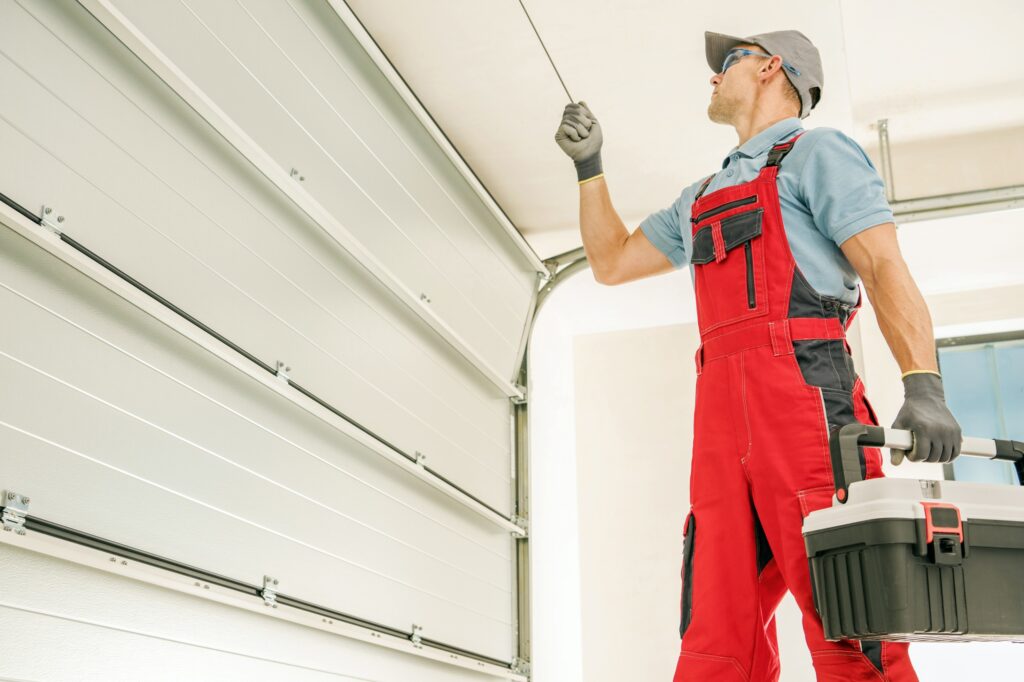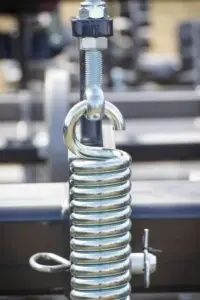If your garage door has been acting up lately—slamming shut, refusing to open, or just making that oh-so-ominous grinding sound—you’re probably due for a Houston garage door repair. But what exactly happens when you schedule a service call? Is it just a quick fix and a goodbye, or is there more to the process?
In this guide, we’ll take you behind the scenes of a typical professional service call—from the initial knock on your door to the final test of your newly functioning system. Whether it’s a noisy garage door, an off-track garage door, or a broken garage door spring, this breakdown has you covered.
Why Call a Pro in the First Place?
Let’s start with the obvious: garage doors are heavy, high-tension, motorized contraptions. One wrong move can lead to a costly mistake—or worse, a serious injury. That’s why calling professional garage door technicians is not only smart—it’s essential. You’re not just paying for the fix. You’re paying for experience, safety, and peace of mind.
Plus, with local garage door repair companies available for same-day service in many cases, there’s really no need to risk a DIY disaster.
Step 1: The Arrival and Initial Assessment
When your technician arrives, they’ll start with a quick walkthrough of your issue. Did the door get stuck mid-open? Has it been squealing like a banshee? They’ll ask the right questions and observe the symptoms.
Then, it’s time for a garage door inspection. This is a top-to-bottom evaluation of your entire system:
- Tracks and rollers
- Cables and pulleys
- Springs and tension levels
- Door alignment
- Sensors and wiring
- Motor and opener system
- Hinges, brackets, and other garage door parts Houston homes rely on
Think of it like a check-up at the mechanic—but for your garage.
Step 2: Diagnostics and Troubleshooting
Once the inspection is complete, the real detective work begins. The technician will perform garage door troubleshooting to identify the root of the problem.
A few common issues they might find include:
- Broken garage door springs (a frequent offender)
- Misaligned tracks
- Worn-out rollers or hinges
- Obstructed or faulty sensors
- Burned-out openers or remote problems
- Doors coming off track during opening or closing
- Tension imbalance that causes jerky movement
Don’t be surprised if they use a diagnostic tool or two. Some modern technicians use smartphone apps and digital readers to test openers and smart garage systems.
Step 3: Presenting the Solution (and the Bill)
Now that your technician has identified the issue, they’ll walk you through the options. You’ll get a quote for the work that needs to be done, including parts, labor, and time estimates.
Step 4: The Repair Process

Once you approve the estimate, the technician gets to work. This part can take anywhere from 30 minutes to a few hours, depending on the complexity of the issue.
Common repairs include:
- Replacing worn or broken garage door springs
- Realigning sensors and tightening loose wiring
- Adjusting garage door alignment to ensure smooth motion
- Replacing damaged rollers or hinges
- Lubricating all moving parts to reduce future wear
And if your motor or opener needs replacing? Some techs carry backup units in their truck so they can swap them out on the spot.
Step 5: Final Testing and Quality Check
After the repair is complete, your technician will run several tests to make sure the problem is truly resolved:
- Open and close cycle tests
- Sensor tests
- Motor operation check
- Manual override testing
- Noise inspection (no more grinding allowed!)
You’ll also get some pro garage door maintenance tips so you can keep things running smoothly—like when to lube the rollers or how to spot early signs of trouble.
Step 6: Paperwork and Warranty Info
Once everything checks out, it’s time to wrap up. You’ll receive:
- A final invoice
- A list of completed repairs
- Any manufacturer or service warranties
- Recommendations for future service (especially if other parts are aging)
Some companies also offer annual maintenance plans. If you live in Houston, where humidity can wreak havoc on metal parts, this might be worth considering.
🧰 Call in the Pros: Trust Local Houston Experts

Whether your door is rattling like a haunted house or simply won’t budge, don’t wait for the problem to get worse. At Houston Garage Door Repair, we specialize in fast, reliable service from professional garage door technicians who know their way around even the trickiest systems.
We offer everything from full motor replacements to security upgrades.
Need help today? Call us for local garage door repair in Houston that’s done right the first time.
❓ FAQ: Quick Questions You Might Still Be Wondering About
How can you tell if the garage door issue is with the opener or the door itself?
One way to test this is to pull the emergency release cord and try to lift the door manually. If it moves easily, the issue likely lies with the opener (motor, sensor, or remote). If it feels heavy or stuck, the problem is more mechanical—possibly a spring, track, or balance issue.
Can garage doors be repaired the same day you call?
In many cases, yes. Especially for common issues like spring replacements, track adjustments, or sensor fixes. However, if your repair requires ordering special door parts that suppliers don’t have in stock, it might take 1–2 business days to complete the service.
Will my homeowner’s insurance cover garage door repair costs?
That depends. Most homeowner policies cover garage door damage due to theft, vandalism, or weather events. However, wear and tear or mechanical failure typically aren’t included. It’s best to check with your provider—and always keep repair receipts in case you need to file a claim.
📘 Next Up: Don’t Miss This!
Why Timely Houston Garage Door Repair Can Protect Your Home from Break-Ins
Discover how ignoring your garage door issues could leave your home vulnerable—and what you can do to keep your family and property safe.





